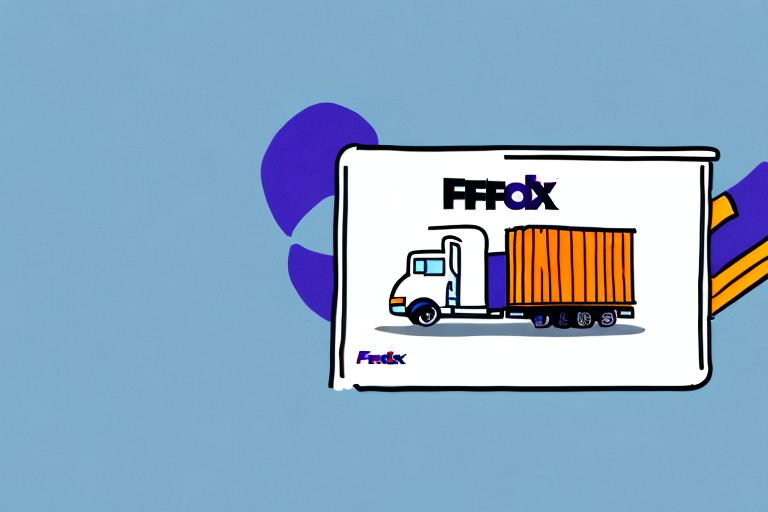What is a Direct Signature and Its Importance
A direct signature is a type of proof of delivery that ensures a FedEx package is delivered only to the intended recipient or an authorized representative. This requirement adds an extra layer of security, particularly for packages that contain high-value items or sensitive documents.
Direct signatures help minimize the risk of package theft and ensure accurate delivery, making it a vital component of the FedEx delivery process.
The Benefits of Direct Signature Requirements
Implementing a direct signature requirement offers several advantages:
- Enhanced Security: Ensures that packages are received only by authorized individuals.
- Proof of Delivery: Provides verifiable confirmation that the package was delivered to the correct recipient.
- Reduced Theft: Minimizes the chances of package theft by preventing unattended deliveries.
These benefits are particularly crucial for high-value or sensitive shipments, as highlighted by FedEx’s security protocols.
When FedEx Requires a Direct Signature for Delivery
FedEx mandates a direct signature for deliveries involving valuable or sensitive items. Understanding when this requirement is enforced can help you prepare and ensure smooth deliveries.
Types of Packages Requiring Direct Signatures
FedEx requires direct signatures for packages containing items such as:
- Jewelry and artwork
- Valuable electronics
- Legal documents
- Hazardous materials
- Alcohol, due to age verification
Additionally, international shipments and deliveries to commercial addresses often require direct signatures to comply with various regulations and company policies.
Common Scenarios Requiring Direct Signatures
Some typical scenarios where direct signatures are necessary include:
- Deliveries to areas with high rates of package theft
- Shipping to business or commercial locations
- Sending sensitive or confidential materials
These scenarios are supported by studies indicating that package theft has increased by 50% over the past few years in certain urban areas ([Source](https://www.fbi.gov/news/stories/why-package-theft-is-on-the-rise-121720)).
Legal Implications of Direct Signatures
Signing for a FedEx package signifies that you have received it in good condition. If the package is damaged or tampered with, it should be reported immediately on the delivery receipt. Signing on behalf of someone else requires legal authority and proper identification.
Failure to adhere to these protocols can result in disputes over package delivery and liability for lost or damaged items.
Direct vs Indirect Signatures: Key Differences
Understanding the difference between direct and indirect signatures is crucial for managing your deliveries effectively.
Direct Signatures
With a direct signature, the recipient or an authorized individual must personally sign for the package. This method offers the highest level of security, ensuring that the package reaches the intended person.
Indirect Signatures
Indirect signatures allow the delivery person to leave the package without obtaining a signature. Instead, the package may be left in a secure location, with a neighbor, or at a building manager’s office. This option is typically used for less valuable items.
For more details, refer to FedEx Signature Options.
Managing Your FedEx Deliveries: Tracking and Signature Requirements
Effective management of your FedEx deliveries involves understanding tracking systems and signature requirements to avoid missed deliveries or delays.
Tracking Your FedEx Package
Use the FedEx Tracking website or app to monitor your package's status. Enter your tracking number to see real-time updates on your delivery, including signature requirements.
Handling Unavailable Situations
If you’re not available to sign for your package, FedEx will attempt redelivery or hold the package at a nearby location. Utilizing FedEx Delivery Manager allows you to customize delivery options, such as rescheduling or redirecting to a different address.
Authorized Representatives
You can designate another person to sign for your FedEx packages on your behalf. Ensure that the authorized individual is at least 21 years old and possesses government-issued photo ID during delivery.
Customizing Your Delivery Options to Avoid Direct Signature Requirements
FedEx offers various customization options to manage your delivery preferences and minimize the need for direct signatures.
Alternate Delivery Locations
Through FedEx Delivery Manager, you can request to have packages held at a FedEx location, delivered to an alternate address, or provided with specific delivery instructions.
Scheduling Delivery Times
Scheduling deliveries when you are available can help avoid the necessity for a direct signature. You can choose specific dates and time windows that accommodate your availability.
Secure Delivery Instructions
Providing clear instructions, such as leaving the package with a neighbor or in a secure location, can facilitate indirect deliveries, though some packages will still require direct signatures.
Preventing Delays and Ensuring Secure Delivery
Proactively managing your FedEx deliveries can help prevent delays and ensure the secure arrival of your packages.
Effective Communication
Communicate with senders about the need for direct signatures and any special handling requirements. This ensures that all parties are aware and can accommodate necessary protocols.
Utilizing FedEx Services
Take advantage of services like FedEx Hold at Location and FedEx Control Tower for enhanced delivery management, especially for business or high-volume shipments.
Ensuring Authenticated Delivery
Always confirm that someone authorized is available to receive and sign for your packages. If not, use FedEx Delivery Manager to adjust delivery settings promptly.
Tips for Ensuring Safe and Secure Delivery of Your Packages
Implementing best practices can help secure your packages and streamline the delivery process with FedEx.
Communicate Delivery Requirements
Inform recipients about the direct signature requirement to ensure they are prepared to receive the package.
Designate an Authorized Representative
Assign a trusted individual to handle package signings on your behalf to maintain security when you’re unavailable.
Provide Clear Delivery Instructions
Offer specific instructions to the delivery person, such as designated drop-off points or preferred delivery times, to facilitate secure and efficient deliveries.
Use Delivery Management Tools
Leverage tools like FedEx Delivery Manager to customize and optimize your delivery preferences, reducing the likelihood of missed deliveries or security issues.
By following these tips and utilizing FedEx’s delivery options and services, you can ensure that your packages are delivered safely and securely through direct signature requirements.
Conclusion
Understanding when a direct signature is required for FedEx deliveries is essential for both senders and recipients. By being aware of the scenarios that necessitate direct signatures, utilizing FedEx’s delivery management tools, and implementing best practices for secure deliveries, you can ensure the safe and timely receipt of your packages. Always stay informed about FedEx’s policies and leverage available resources to optimize your shipping and receiving experience.






















